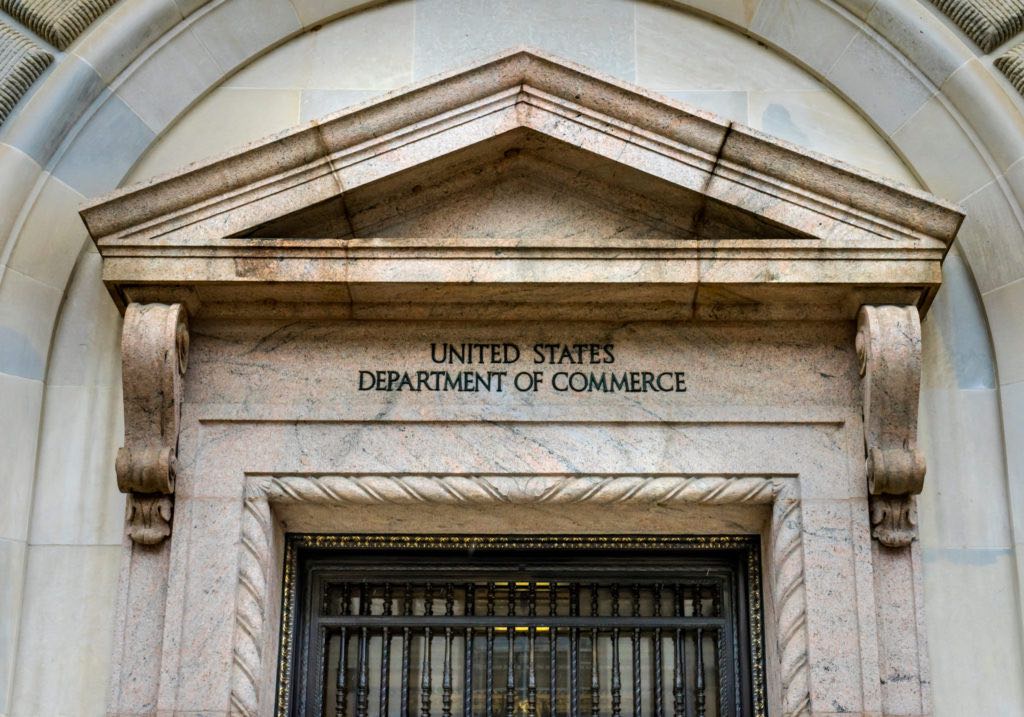
FACT SHEET: Biden-Harris Administration Announces 31 Regional Tech Hubs to Spur American Innovation, Strengthen Manufacturing, and Create Good-Paying Jobs in Every Region of the Country
Oct 23, 2023
FACT SHEET: Biden-Harris Administration Announces 31 Regional Tech Hubs to Spur American Innovation, Strengthen Manufacturing, and Create Good-Paying Jobs in Every Region of the Country
KCPullen@doc.gov
Mon, 10/23/2023 – 10:47
ICT Supply Chain
Investing in communities and workers
Manufacturing
FOR IMMEDIATE RELEASE
Monday, October 23, 2023
Office of Public Affairs
publicaffairs@doc.gov
Bidenomics and the President’s Investing in America Agenda are Positioning Regions Across the Country to Lead the Industries of the Future
Today, President Biden and Secretary of Commerce Gina Raimondo will announce the designation of 31 communities across the country as Regional Innovation and Technology Hubs (Tech Hubs) through the Department of Commerce Economic Development Administration. These Tech Hubs will catalyze investment in technologies critical to economic growth, national security, and job creation, and will help communities across the country become centers of innovation critical to American competitiveness. The Tech Hubs program was authorized by the CHIPS and Science Act – signed by President Biden in August 2022 – and is part of the President’s Bidenomics agenda to grow the economy from the middle out and bottom up.
The 31 Tech Hubs focus on developing and growing innovative industries in regions across the country, including semiconductors, clean energy, critical minerals, biotechnology, precision medicine, artificial intelligence, quantum computing, and more. Tech Hubs bring together private industry, state and local governments, institutions of higher education, labor unions, Tribal communities and nonprofit organizations to compete for up to $75 million implementation grants to further develop these fields and make transformative investments in innovation, supply chain resilience, and job creation.
President Biden’s Investing in America agenda has used strategic public investments to crowd-in private sector funding in key areas driving American competitiveness. Since President Biden took office, private companies have announced more than a half a trillion dollars in clean energy and manufacturing investments, including $230 billion in semiconductor manufacturing, nearly $140 billion in electric vehicle and battery manufacturing, and $20 billion in biomanufacturing, all of which are represented by the Tech Hubs announced today. These investments will further position U.S. businesses and workers to outcompete the world in the economy of tomorrow and strengthen our national and economic security.
For too long, economic growth and opportunity has clustered in a few cities on the coasts. Tech Hubs awardees were selected to represent the full diversity of America, selected from more than 370 applications spanning 49 states and four territories. The Tech Hubs will bring the benefits and opportunities of scientific and technological innovation to communities across the country, with nearly three-quarters significantly benefitting small and rural areas and more than three-quarters directly supporting historically underserved communities. The Tech Hubs all include workforce organizations such as labor unions, helping create good-paying, union jobs in the communities where workers live. And, in addition to the 31 Tech Hubs, the Department of Commerce is awarding 18 coalitions Strategy Development Grants to build economic development plans to compete for future rounds of the Tech Hub program.
Tech Hub Designations
Tech Hubs spanning 32 states and Puerto Rico will catalyze growth in critical industries:
Enabling Safe and Effective Autonomous Systems
Tulsa Hub for Equitable & Trustworthy Autonomy (THETA) (OK), led by Tulsa Innovation Labs, aims to become a global leader in developing and commercializing autonomous systems for use cases ranging from agriculture and pipeline inspections to regional transportation.
Ocean Tech Hub (RI, MA), led by the Rhode Island Commerce Corporation, aims to develop, test, and commercialize emerging maritime artificial intelligence and machine learning-enabled robotics and sensors.
Headwaters Hub (MT), led by Accelerate Montana, aims to become a global leader in smart technologies for automating complex processes, such as industrial manufacturing.
Maintaining Our Quantum Edge
Elevate Quantum Colorado (CO), led by Elevate Quantum, aims to solidify the region’s global leadership in quantum information technology (QIT) to increase infrastructure resilience and strengthen the quantum hardware supply chain.
The Bloch Tech Hub (IL, IN, WI), led by the Chicago Quantum Exchange (CQE), aims to lead quantum computing, communications, and related solutions.
Advancing Biotechnology in Drugs and Medical Devices
Advanced Pharmaceutical Manufacturing Tech Hub (VA), led by the Commonwealth Center for Advanced Manufacturing, aims to accelerate the growth, innovation, and sustainability of the U.S.-based Advanced Pharmaceutical Manufacturing industry to re-shore safe and affordable medicines via innovative hybrid and continuous flow manufacturing technologies.
ReGen Valley Tech Hub (NH), led by the Advanced Regenerative Manufacturing Institute (ARMI), aims to make New Hampshire a global leader in biofabrication to produce cost-effective regenerative therapies that address chronic disease and organ failure.
iFAB Tech Hub (IL), led by the University of Illinois Urbana-Champaign, aim to scale precision fermentation to convert underutilized corn feedstocks into high-value, customized alternative proteins, food ingredients, materials, chemicals, and more.
Kansas City Inclusive Biologics and Biomanufacturing Tech Hub (MO, KS), led by BioNexus KC, aims to position eastern Kansas and western Missouri as a global leader in biologics and biomanufacturing, increasing domestic production of life-saving vaccines and other preventative technologies.
Heartland BioWorks (IN), led by the Applied Research Institute, aims to develop central Indiana into a global leader in biotechnology and biomanufacturing by increasing the region’s capacity to make and deploy life-saving medicines.
PRBio Tech Hub (PR), led by the Puerto Rico Science, Technology and Research Trust, aims to advance the region as a global leader in biotechnology through fast-tracking the discovery, development, manufacturing, and supply of next generation biotechnology and medical device products to detect, treat, and cure diseases and ailments.
Advancing Biotechnology Precision and Prediction
Wisconsin Biohealth Tech Hub (WI), led by BioForward Wisconsin, aims to position Wisconsin as a global leader in personalized medicine, an emerging healthcare approach that tailors tests, treatments, and therapies informed by a patient’s unique genetic code, medical record, and environment.
Baltimore Tech Hub (MD), led by the Greater Baltimore Committee, aims to develop innovative predictive healthcare technologies by applying artificial intelligence to biotechnologies.
Birmingham Biotechnology Hub (AL), led by Southern Research Institute, aims to become a global leader in drug, vaccine, and diagnostics development by applying artificial intelligence-driven biotechnology to increase representation in clinical genomic data and clinical trials.
Greater Philadelphia Region Precision Medicine Tech Hub (PA, DE, MD, NJ), led by the Ben Franklin Technology Partners of Southeastern PA, aims to become a global leader in end-to-end precision medicine.
Minnesota MedTech Hub 3.0 (MMT3.0) (MN, WI), led by the Minneapolis Saint Paul Economic Development Partnership, aims to position Minnesota as a global center for “Smart MedTech” by integrating artificial intelligence, machine learning, and data science into medical technology.
Accelerating America’s Clean Energy Transition
Gulf Louisiana Offshore Wind Propeller (LA), led by Louisiana State University, aims to transition Louisiana’s energy economy from its legacy of oil and gas to offshore wind and renewable energy.
Intermountain-West Nuclear Energy Tech Hub (ID, WY), led by the Idaho Advanced Energy Consortium, aims to position Idaho and Wyoming as a global leader in small modular reactors (SMR) and advanced nuclear energy to contribute to a clean energy future.
SC Nexus for Advanced Resilient Energy (SC, GA) led by the South Carolina Department of Commerce, aims to be a global leader in advanced energy by developing, testing, and deploying exportable electricity technologies.
South Florida Climate Resilience Tech Hub (FL), led by the Miami Dade County Innovation and Economic Development Office, aims to advance its global leadership in Sustainable and Resilient Infrastructure (SRI) solutions for the global climate crisis.
New Energy New York (NENY) Battery Tech Hub (NY), led by the State University of New York (SUNY) Binghamton, aims to bolster battery technology development and manufacturing across the entire value chain.
Strengthening Our Critical Minerals Supply Chain
Nevada Lithium Batteries and Other EV Material Loop (NV), led by the University of Nevada, Reno, aims to build a self-sustaining and globally competitive full lithium lifecycle cluster, spanning extraction, processing, manufacturing, and recycling.
Critical Minerals and Materials for Advanced Energy (CM2AE) Tech Hub (MO), led by the University of Missouri System, aims to position south-central Missouri as a global leader in critical minerals processing to provide the materials needed to support battery technology.
Regaining Leadership in Semiconductor Manufacturing
Texoma Semiconductor Tech Hub (TX, OK), led by Southern Methodist University, aims to unify existing and planned semiconductor supply chain infrastructure by enhancing regional collaboration and uplifting underserved communities through workforce expansion.
Corvallis Microfluidics Tech Hub (OR), led by Oregon State University, aims to establish global leadership in the development, scaling, and commercialization of microfluidics technology for use in semiconductor and electronic cooling.
NY SMART I-Corridor Tech Hub (NY), led by CenterState Corporation for Economic Opportunity, aims to enhance regional semiconductor manufacturing capabilities while ensuring economic opportunity for underserved communities.
Advancing Gallium Nitride (GaN) Tech Hub (VT), led by the University of Vermont, aims to innovate in GaN manufacturing, a critical materials technology for wireless communication.
Growing the Future of Materials Manufacturing
Sustainable Polymers Tech Hub (OH), led by the Greater Akron Chamber, aims to tackle the severe climate and environmental impacts resulting from the use of fossil fuel-derived polymers (rubbers and plastics) through accelerating sustainable polymer manufacturing and commercialization in the United States.
Forest Bioproducts Advanced Manufacturing Tech Hub (ME), led by the Maine Technology Institute, aims to become a global leader in forest-based biomaterial production and manufacturing by innovating the process of extracting biological building blocks to manufacture environmentally sustainable products.
American Aerospace Materials Manufacturing Tech Hub (WA, ID), led by Gonzaga University, aims to develop new domestic supply chains to meet the immediate demand for high-rate production of advanced composite aerostructures in defense and commercial markets.
Pacific Northwest Mass Timber Tech Hub (OR, WA), led by Oregon State University, aims to be a global leader in mass timber design and manufacturing to lower the construction industry’s carbon footprint and improve housing affordability.
Supporting Tech Hubs Through an All-of-Government Strategy
To ensure these Tech Hubs have the tools they need to compete on a global scale, the Administration is bringing the full resources of the federal government to identify and provide funding, technical assistance, and planning for the 31 coalitions, including:
Providing Tech Hubs access to follow-on funding from across the federal government, such as future Tech Hubs implementation funding, Economic Development Administration funding opportunities, and the U.S. Department of Treasury’s State Small Business Credit Initiative (SSBCI) programs
Tech Hubs will have access to a range of technical assistance from agencies such as the Department of Transportation, the U.S. Department of Agriculture, and the Small Business Administration, and will have access to exclusive Tech Hubs branding
Tech Hubs will have support attracting foreign direct investment and receive export market access assistance, including having a dedicated presence at the SelectUSA Investment Summit Exhibition Hall in June 2024 and will have access to export assistance navigators that offer a global resilience stress test for each Tech Hubs Designee.
Tech Hubs will also receive technical assistance and program support on intellectual property issues
See the White House fact sheet for information on today’s announcement. In addition, you can learn more about the benefits of receiving a Tech Hub designation here.
Bureaus and Offices
Economic Development Administration
Tags
Workforce Development
Read the full report from the U.S. Department of Commerce: Read More


